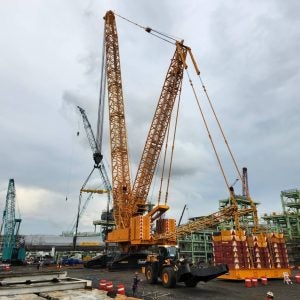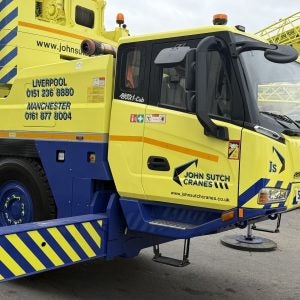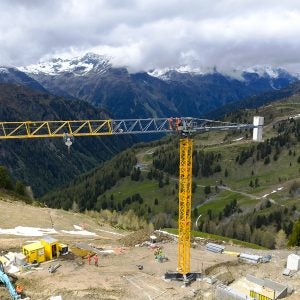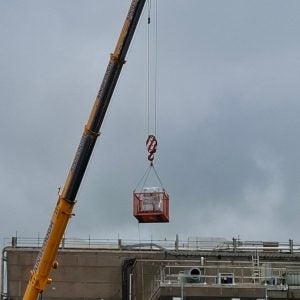The departures come at the same time as both companies radically reshape themselves. Manitowoc, prompted by activist investor Carl Icahn, has decided to split itself in two, with its foodservice business being spun off into a new company. Terex is in the middle of a merger with Finland’s Konecranes.
Manitowoc had built up its foodservice business with the acquisition of Enodis in 2008. The argument made at the time was that exposure to the non-cyclical food sector would balance out some of the peaks and troughs of the the construction sector. That argument makes sense. However, with the crane industry as a whole struggling constantly since that deal, it’s easy to see why investors like Icahn saw more value in separating the businesses.
The long, hard-to-predict, period of struggle we’ve seen since 2007 also undermined DeFeo’s ambitions for Terex. Back in February of 2007, as he introduced Terex’s full year 2006 results, DeFeo introduced a new medium-term stretch goal: "12 by 12 in 2010", or $12bn in net sales, with a 12% operating margin, by the end of 2010. While this goal was based on Terex’s success in prior years, it turned out to be a stretch too far. By the end of 2010, Terex’s net sales were $4.4bn, and the company had made a loss of $215.5m.
In 2007, it looked very much like Terex was on the way to converting itself from a bundle of loosely related acquisitions, to a wellintegrated international equipment manufacturer, with interests across the construction sector and beyond. Instead, it sold its mining business to Bucyrus in 2009; roadbuilding and trucks, separately, in 2013; and half of its skid steer business to Manitex in 2014.
The reshaping of Manitowoc and Terex have similar effects. Manitowoc will now be entirely a crane business, having sold off its legacy shipbuiding segment at the same time as buying Enodis. Terex and Konecranes say they will create a ‘leading global lifting and material handling solutions company’.
This raises the question of how well a crane business can work as part of a larger, listed, corporation. Many of the large businesses that build a wide range of cranes alongside other equipment are family businesses (like Liebherr), or have strong ties to the state (like China’s XCMG and Zoomlion). Perhaps the levels of investment and commitment needed to build a multiline crane business, requires a particular type of focus and patience from owners, that the stock market does not easily accept?
Will North editor
wnorth@cranestodaymagazine.com






